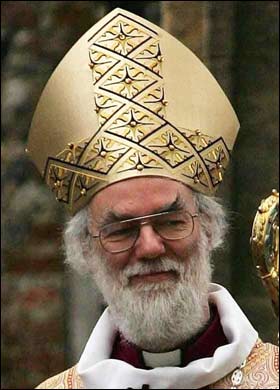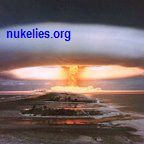It seems a bit bizarre that a country generally regarded worldwide as advanced, and powerful, and at the leading edge of science, should harbour many such people. I'm assuming this isn't just an artefact caused by media advertising and promotion; no doubt Billy Graham was funded, and no doubt now Jewish money goes to many organisations, but there do seem to be large numbers of Protestant fundamentalists, who seem to have genuine beliefs.
The puzzle is posts like the following one, from https://www.theBritishResistance.co.uk website, where most posters are aware of the risks of anti-white propaganda, wars, immigration into white countries, present-day Jewish and political corruption, plus the more nebulous fears instilled by the junk media --
My brilliant Minister preaches for hours every week. His topic? How to penetrate the fog of deception that has penetrated every mind in the world. As Christians we ALL have the duty to spread the gospel. That is our calling. That is why our nations exist. My pastor teaches that as Christians we must start our study NOT in Matthew Luke or John BUT IN REVELATION! The book of revelation is a MESSAGE from God the Father TO THE CHURCHES!
Revelation teaches us how to deal with these end times. Here is a truth we must ALL accept: THE ENTIRE WORLD IS DECEIVED! EVERYONE INCLUDING CHRISTIANS IS DECEIVED! The only way OUT of the cloud of deception is by God's grace which he freely gives. Satan has deceived us all. Etc etc
This poster believes that the (supposed) atom bombs were predicted in the Bible. What's going on here?
Maybe there's some clue from history. Assuming the traditional dates are more-or-less right, we find
1620 - first settlement in the USA that proved viable. Let's try to summon up the mental atmosphere of the time. I'll consider the offical dates of publications of printed books, taken more or less at random from my notes. Given the cost and rarity of these things, it's reasonable to expect their ideas would take decades to percolate down. So in the previous century or so we see the whole Reformation movement, plus the spread of European ideas, and the feeling of practical things being passed down by books rather than oral sources--
1489 Malleus Maleficarum Hefty tome on witchcraft in the European sense
1517 Disputatio Contra Scholasticam Theologiam - Martin Luther - German Disputes Against Scholastic Theologians
1525 ish- 1611ish: outpouring of translations of the Bible, including 1525-1539 Tyndale's Old and New Testaments; Matthews Bible; Taverners Bible; Great Bible.
1556-1559ish Something of a fightback: Index Librorum Prohibitorum because the Catholic view was that the Bible (in Latin) was exclusive property of the priestly hierarchy, as opposed to 'Bible Christianity'. Foxe's Book of Martyrs - deaths of Protestants - belongs here.
1560-1611 Geneva Bible. Completion of Authorized King James Bible in England 50 years later. Calvin died early in this period; he reputedly revived the idea of individualist action, of backing one's own judgment.
There must have been some Renaissance influence. To take a few examples, we have 1485 Caxton's printed edition of the Morte d'Arthur; 1500 Erasmus's Adagia; 1513 Machiavelli's The Prince; 1516 Orlando Furioso; 1517 Plutarch's Parallel Lives; 1528 Castiglione's Il Cortegiano; 1543 Vesalius's The Structure of the Human Body; 1550ish Vasari's Lives of the Artists; 1556 Agricola's de re Metallica; 1557 Thomas Tusser's Five Hundred Good Pointes of Husbandrie. There was a slow surge of books: poetry, essays for pleasure, philosophy, art, science, travel, technology, and just handbooks of everyday techniques. But I'd guess ordinary English people were relatively uninfluenced by most of these somewhat remote activities.
After this time, the Reformation took the arguably unChristian form of the Thirty Years' War, starting in 1618. It seems plausible that the mental world of English colonists was bookish Christianity, rather free from the multiple new interests, arguments and sources of violence in Europe. And they had to make a living in what they'd see as wilderness, cut off by the Atlantic from easy access to apparently simple things like horseshoes and saws and glass and leather. People with a liking for abstract thought must have had little option but speculate on Biblical lines. The English Civil War, after the Thirty Years' War, must have encouraged English emigration, despite the hazards of crossing the Atlantic in small ships. Cromwell and others used Biblical analogies as a matter of course. There was a lot of emigration from Germany, too; these people may well have had a similar outlook.
The question I have is what happened from, say, 1700-1920. What kept ideas so static amongst so many people? Or am I being unfair? Large areas of Russia and China had many peasants; I've heard the USA compared to India by a rationalist - she told me she was on a bus in the deep south, and the driver called out "Say, this lady doesn't believe in God!" and the entire busload of people laughed. Is the country too huge to allow ideas to interact? Did it need so much work against army worms and wild animals and Indians that there was no time for wide thought? Did there come to be so much in the way of raw materials that their version of consumerism dominated everything?
Looking back from the Civil War through the 20th century, the USA's population has been exploited and plundered and used; they've been unable to fight back against alien forces. This has become so serious that the USA's population seem to be amongst the most gullible and naive of any in the world - in proportion to their power.




